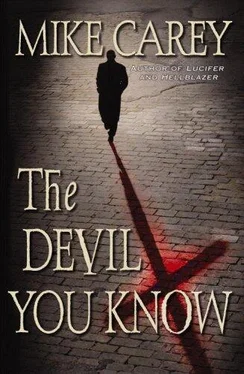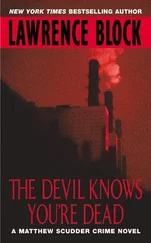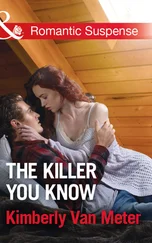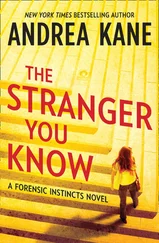The Devil You Know
(The first book in the Felix Castor series)
A novel by Mike Carey
To Lin; as if there’s any other direction that matters
With thanks to all the staff at the London Metropolitan Archive who were so hospitable and so generous with their time—especially Jan Pimblett and Dorota Pomorska-Dawid. Also to my ever-inspiring agent, Meg Davis, who helped out with my stumbling Russian, and my editor, Darren Nash, who provided both a sounding board for ideas and a large quantity of Belgian beer to help with the acoustics for said board. To desk editor Gabriella Nemeth, whose London A–Z, unlike mine, is the right way up. And finally to my wife, Lin, the superpowered offspring of a lawyer and a Litvak, who spotted no fewer than six massive errors in the original typescript. Great work, team: now into your starting positions for book two.
NORMALLY I WEAR A CZARIST ARMY GREATCOAT—the kind that sometimes gets called a paletot—with pockets sewn in for my tin whistle, my notebook, a dagger, and a chalice. Today I’d gone for a green tuxedo with a fake wilting flower in the buttonhole, pink patent-leather shoes, and a painted-on mustache in the style of Groucho Marx. From Bunhill Fields in the east, I rode out across London—the place of my strength. I have to admit, though, that “strong” wasn’t exactly how I was feeling; when you look like a pistachio-ice-cream sundae, it’s no easy thing to hang tough.
The economic geography of London has changed a lot in the last few years, but Hampstead is always Hampstead. And on this cold November afternoon, atoning for sins I couldn’t even count and probably looking about as cheerful as a tricoteuse being told that the day’s executions have been canceled due to bad weather, Hampstead was where I was headed.
Number 17, Grosvenor Terrace, to be more precise: an unassuming little early Victorian masterpiece knocked off by Sir Charles Barry in his lunch hours while he was doing the Reform Club. It’s in the books, like it or not; the great man would moonlight for a grand in hand and borrow his materials from whatever else he was doing at the time. You can find his illegitimate architectural progeny everywhere from Ladbroke Grove to Highgate, and they always give you that same uneasy feeling of déjà vu, like seeing the milkman’s nose on your own firstborn.
I parked the car far enough away from the door to avoid any potential embarrassment to the household I was here to visit and managed the last hundred yards or so burdened with four suitcases full of highly specialized equipment. The doorbell made a severe, functional buzzing sound like a dentist’s drill sliding off recalcitrant enamel. While I waited for a response, I checked out the rowan twig nailed up to the right of the porch. Black and white and red strings had been tied to it in the prescribed order, but still . . . a rowan twig in November wouldn’t have much juice left in it. I concluded that this must be a quiet neighborhood.
The man who opened the door to me was presumably James Dodson, the birthday boy’s father. I took a strong dislike to him right then to save time and effort later. He was a solid-looking man, not big but hard-packed, gray eyes like two ball bearings, salt-and-pepper hair adding its own echoes to the gray. In his forties, but probably as fit and trim now as he had been two decades ago. Clearly, this was a man who recognized the importance of good diet, regular exercise, and unremitting moral superiority. Pen had said he was a cop—chief constable in waiting, working out of Agar Street as one of the midwives to the government’s new Serious Organized Crime Agency. I think I would have guessed either a cop or a priest, and most priests gratefully let themselves go long before they hit forty; that’s one of the perks of having a higher calling.
“You’re the entertainer,” Dodson said, as you might say, “You’re a motherless piece of scum and you raped my dog.” He didn’t make a move to help me with the cases, which I was carrying two in each hand.
“Felix Castor,” I agreed, my face set in an unentertaining deadpan. “I roll the blues away.”
He nodded noncommittally and opened the door wider to let me in. “The living room,” he said, pointing. “There’ll be rather more children than we originally said. I hope that’s okay.”
“The more the merrier,” I answered over my shoulder, walking on through. I sized the living room up with what I hoped looked like a professional eye, but it was just a room to me. “This is fine. Everything I need. Great.”
“We were going to send Sebastian over to his father’s, but the bloody man had some sort of work crisis on,” Dodson explained from behind me. “Which makes one more. And a few extra friends . . .”
“Sebastian?” I inquired. Throwing out questions like that is a reflex with me, whether I want answers or not; it comes from the work I do. I mean, the work I used to do. Sometimes do. Can live without doing.
“Peter’s stepbrother. He’s from Barbara’s previous marriage, just as Peter is from mine. They get along very well.”
“Of course.” I nodded solemnly, as if checking out the soundness of the familial support network was something I always did before I started in on the magic tricks and the wacky slapstick. Peter was the birthday boy—just turned fourteen. Too old, probably, for clowns and conjurors and parties of the cake-and-ice-cream variety. But then, that wasn’t my call to make. They also serve those who only pull endless strings of colored ribbon out of a baked-bean tin.
“I’ll leave you to set up, then,” Dodson said, sounding dubious. “Please don’t move any of the furniture without checking with me or Barbara first. And if you’re setting up anything on the parquet that might scratch, ask us for pads.”
“Thanks,” I said. “And mine’s a beer whenever you’re having one yourself. The term ‘beer’ should not be taken to include the subset ‘lager.’”
He was already heading for the door when I threw this out, and he kept right on going. I was about as likely to get a drink out of him as I was to get a French kiss.
So I got down to unpacking, a task that was made harder by the fact that these cases hadn’t moved out of Pen’s garage in the last ten years. There were all sorts of things in among the stage-magic gear that gave me a moment’s—or more than a moment’s—pause. A Swiss Army penknife (it had belonged to my old friend Rafi) with the main blade broken off short an inch from the tip; a homemade fetish rigged up out of the mummified body of a frog and three rusty nails; a feathered snood, looking a bit threadbare now, but still carrying a faint whiff of perfume; and the camera.
Shit. The camera.
I turned it over in my hands, instantly submerged in a brief but powerful reverie. It was a Brownie Autographic No. 3, and all folded up as it was, it looked more like a kid’s lunch box than anything else. But once I flipped the catches, I could see that the red-leather bellows was still in place, the frosted viewfinder was intact, and (wonder of wonders) the hand-wheeled stops that extended the lens into its operating position still seemed to work. I’d found the thing in a flea market in Munich when I was backpacking through Europe. It was nearly a hundred years old, and I’d paid about a quid for it, which was the whole of the asking price, because the lens was cracked right the way across. That didn’t matter to me—not for what I principally had in mind at the time—so it counted as a bargain.
I had to put it to one side, though, because at that moment the first of the party guests were shepherded in by a very busty, very blonde, very beautiful woman who was obviously much too good for the likes of James Dodson. Or the likes of me, to be fair. She was wearing a white bloused top and a khaki skirt with an asymmetric hang, which probably had a designer name attached to it somewhere and cost more than I earned in six months. For all that, though, she looked a touch worn and tired. Living with James Supercop would do that to you, I speculated; or, possibly, living with Peter, assuming that Peter was the sullen streak of curdled sunlight hovering at her elbow. He had his father’s air of blocky, aggressive solidity, with an adolescent’s wary stubbornness grafted onto it. It made for a very unattractive combination, somehow.
Читать дальше











